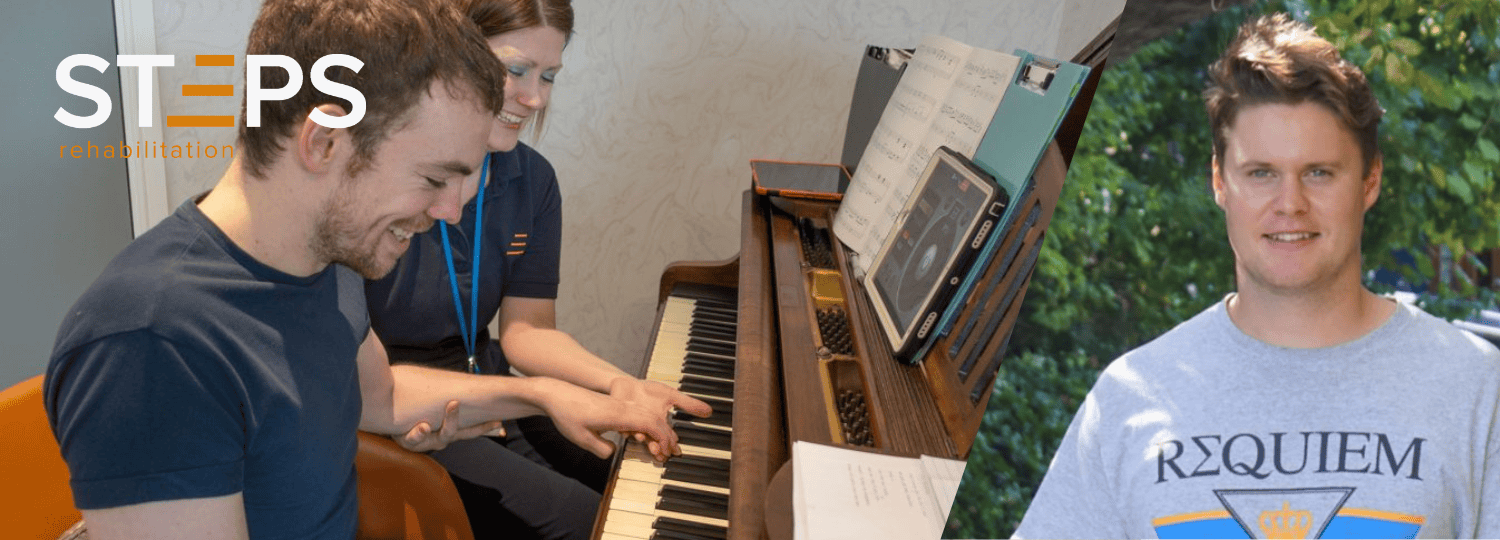At STEPS Rehabilitation, we are inspired by the stories of resilience and courage we encounter daily. Recently, actress and campaigner, Emilia Clarke, has used her high profile to shine a light on the lack of rehabilitation facilities for young adult stroke survivors, a pressing issue that we see firsthand in our work.
Emilia suffered two brain haemorrhages when she was just 24, and went on to set up a charity with her mum, Jenny, called SameYou to help people with brain injuries. The charity is calling for more to be done to help young stroke survivors.
We recognise that young adult stroke survivors face challenges in accessing the intensive rehabilitation they need to help rebuild their lives following this debilitating illness. Through our work at STEPS, we have provided intensive residential rehabilitation to several young adults who have experienced a stroke and we’ve seen firsthand what a huge impact the right combination of intensive therapies and treatment can have on individuals.
As with all of our clients, stroke clients receive a highly personalised programme of interdisciplinary care, delivered by a team of rehabilitation experts. That care encompasses both physical rehabilitation and essential psychological support to help them regain independence, and develop resilience, giving them the confidence and ability to live as full a life as possible when they return home.
The Impact of Intensive Rehabilitation
One of the very first clients we cared for at STEPS Rehabilitation was David. At the age of just 27, experienced an ischaemic stroke that left him with hemiplegia (paralysis on one side of his body) and aphasia (difficulty with speech). When he first arrived, David was using a wheelchair and had significant muscle weakness; he also struggled with communication.
Through an intensive programme combining physiotherapy, occupational therapy, speech and language therapy, and advanced technologies such as robotic-assisted rehabilitation. David made remarkable progress during his 3-month stay with us. He describes how "there were dark days of sadness and anger, but I am a determined individual and I wasn't going to let it beat me."
His dedication, alongside the holistic support at STEPS, enabled him to regain strength, improve his mobility, and restore his confidence, highlighting what is possible with the right care and resources.
Since leaving us, David returned to complete his degree in mechanical engineering and now works as a systems engineer.
Like David, we have seen other clients make incredible progress after periods of intensive residential rehabilitation following a stroke. Following a bicycle accident which caused damage to an artery in his neck, Ed Callendar suffered a stroke resulting in severe restrictions to his movements.
When Ed arrived at STEPS Rehabilitation he faced extensive physical challenges, including limited mobility and strength due to both the spinal injuries and the impact of the stroke. He was determined to use his stay at STEPS to manage his fatigue and practise the skills needed when he moved back to his flat in London. Ed engaged in a range of therapies, including physiotherapy, hydrotherapy, Occupational therapy and Psychology, all designed to aid his recovery from such complex injuries.
His progress, whilst at STEPS, was remarkable and demonstrates the difference that specialised, comprehensive support can make in rebuilding strength and confidence after life-changing injuries
The Reality for Young Stroke Survivors
The experience of these clients underscores the gap between what young stroke survivors and their families need and what is currently offered.
As Emilia Clark stated, young stroke survivors “need essential mental health support and the opportunity to access enhanced recovery services to give them the vital tools to be well and live fully.”
Yet, the reality is sobering. Clarke continued, “there is a massive gap between what survivors and their families say they need and want, and what is currently being offered.”
Access to Intensive Rehabilitation
At STEPS, we too recognise the need for improvement in the care pathway for young stroke survivors. To help address these gaps, we have established the STEPS Foundation, a charitable trust, launched in Autumn 2023, that seeks to ‘plug the gap’ for individuals unable to fund access to this specialised support.
Through the foundation, we aim to provide resources, financial support, funding, and advocacy for individuals recovering from complex trauma injuries and illness, including young stroke survivors, helping to bridge the divide between need and provision.
Our experience has shown us that stroke survivors require comprehensive, individualised care to reach their full potential. At STEPS, we are committed to advocating for change and to providing the robust rehabilitation services that young stroke survivors need.
